Samsung is having a hard time as Xiaomi, OPPO, and VIVO compete globally for its market share
![]() 11/26 2024
11/26 2024
![]() 440
440
To be honest, in the mobile phone industry, one cannot help but admire Samsung.
Over the years, Samsung has consistently ranked first globally. Even as its market share in China gradually declined to just 1%, Samsung remained at the top, never knocked off by competitors like Apple or Huawei.
There are many reasons why Samsung is so dominant. On the one hand, Samsung was already a leader during the feature phone era and has kept up with the transition to smartphones, giving it a strong brand foundation and distribution channels.

Furthermore, Samsung has a comprehensive mobile phone supply chain, from chips to screens to memory, enabling self-sufficiency. With its strong R&D capabilities, Samsung phones excel in innovation, technology, and design, making them popular among consumers.
Moreover, Samsung, backed by South Korea, an ally of the United States, has faced no global market restrictions. Its global expansion has been unhindered by political factors, unlike Chinese phone makers.
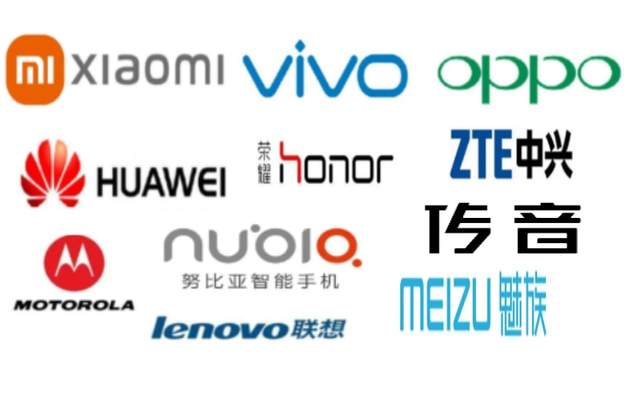
However, as domestic phone makers expand globally, Samsung's advantages are becoming less pronounced. Xiaomi, OPPO, and VIVO are now competing for Samsung's market share worldwide.
Using third-quarter data as an example will clearly illustrate this fact. In the global market, Samsung's market share remained stagnant this quarter, but in a growing market, stagnation means decline.
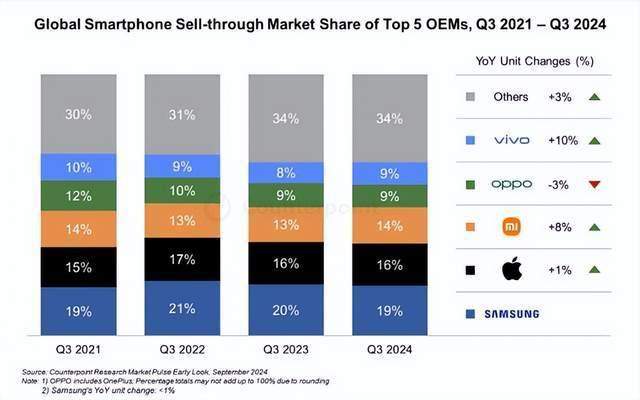
Meanwhile, Xiaomi and VIVO saw growth, with Xiaomi increasing by 8% and VIVO by 10%.
In the Chinese market, Samsung's current share of only 1% is negligible, with the market dominated by domestic brands.
In the African market, Samsung declined by 30%, while Xiaomi grew by 13%, realme by 101%, and OPPO by 22%.
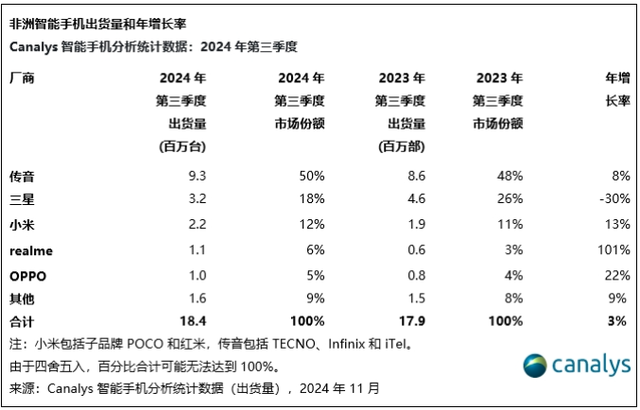
In the Indian market, Samsung fell by 4%, while Xiaomi grew by 3%, VIVO by 26%, and OPPO by 43%.
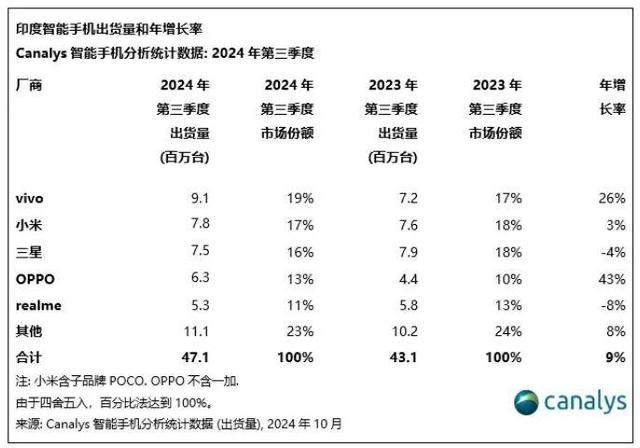
In the Asia-Pacific market (excluding China), Samsung also declined by 10%, while Xiaomi grew by 10%, OPPO by 20%, and VIVO by 23%.
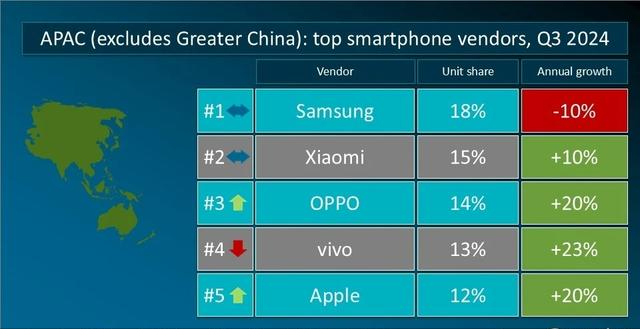
In the European market, Samsung's performance is also declining, with Xiaomi, OPPO, VIVO, and their sub-brands like OnePlus, realme, and iQOO seeing increasing sales and market share.
Currently, Samsung's sales are relatively unaffected by domestic phone makers only in its home market of South Korea and the U.S. Globally, however, Xiaomi, OPPO, and VIVO are gaining market share.
With limited innovation in the mobile phone industry, Samsung itself is also struggling to introduce new features. Its advantages are becoming less pronounced, and a market decline and sales drop are foreseeable.







